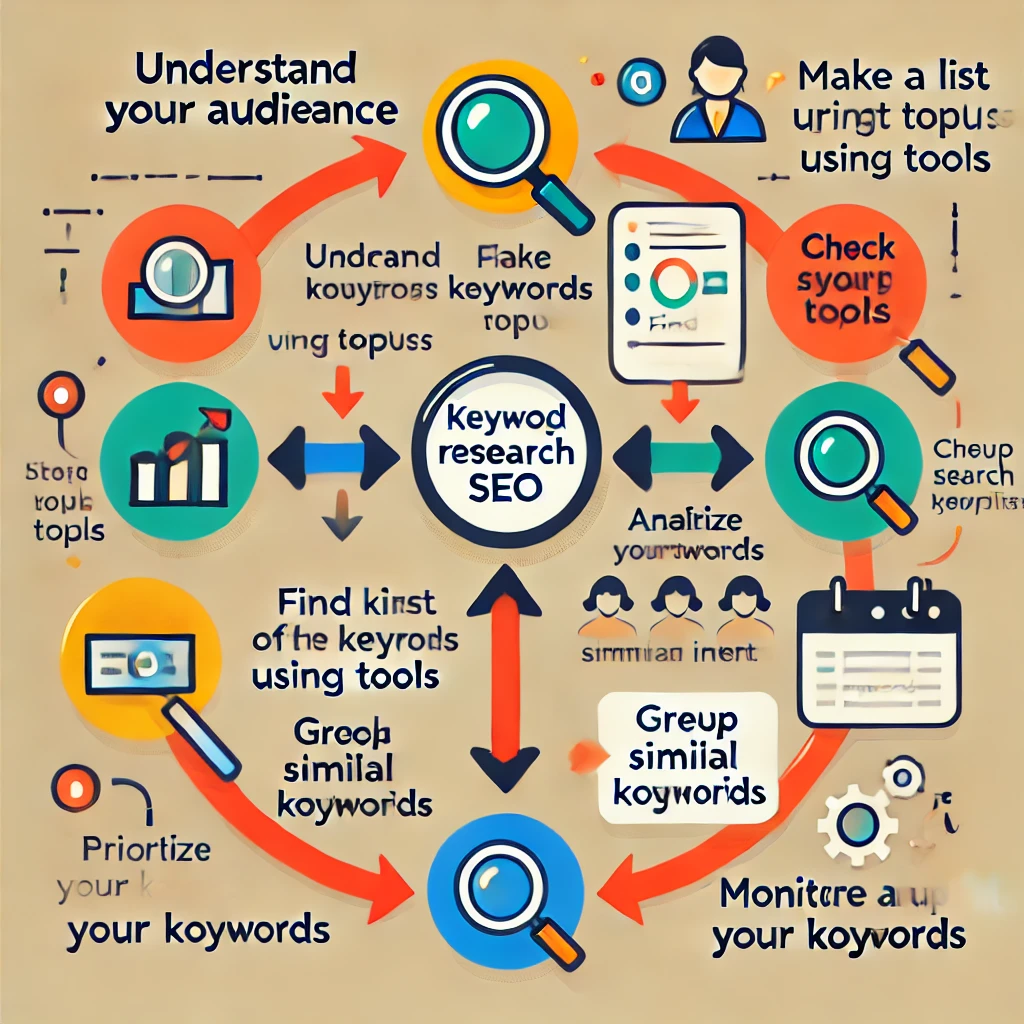How to Conduct Keyword Research for SEO: A Beginner’s Guide
Keyword research is a crucial step in Search Engine Optimization (SEO). It helps you find the words and phrases people use to search for information online. By targeting the right keywords, you can attract more visitors to your website. This guide will walk you through the basics of keyword research, making it easy for beginners to understand.
1. Understand Your Audience
The first step in keyword research is understanding your audience. Think about who they are, what they are looking for, and how your product or service can help them. Consider their needs, problems, and interests. This understanding will guide you in choosing the right keywords that match their search intent.
2. Make a List of Relevant Topics
Start by brainstorming a list of topics related to your business. For example, if you run a laptop store, your topics might include “best laptops for students,” “affordable gaming laptops,” or “laptop buying guide.” These topics should be broad but relevant to your business. They will serve as a foundation for finding specific keywords.
3. Find Keywords Using Tools
There are many tools available to help you find keywords. Some popular ones include Google Keyword Planner, Ubersuggest, and Ahrefs. These tools allow you to enter your topics and see a list of related keywords, along with data like search volume (how many people search for the keyword) and competition (how many other websites are targeting the keyword).

4. Analyze the Keywords
Once you have a list of keywords, you need to analyze them. Look for keywords with a good balance of search volume and competition. High search volume means more people are searching for that keyword, but high competition means it will be harder to rank for it. As a beginner, it’s best to target keywords with lower competition to increase your chances of ranking higher on search engines.
5. Check Search Intent
Search intent refers to the reason behind a user’s search. Are they looking to buy something, learn something, or just gather information? Understanding search intent is crucial because it helps you choose keywords that align with what users are actually looking for. For example, if someone searches “best laptops for students,” their intent is likely to find recommendations, so your content should focus on that.
6. Group Similar Keywords
After analyzing and understanding the keywords, group similar ones together. For instance, if you have keywords like “best gaming laptops” and “top gaming laptops,” you can group them under the topic of gaming laptops. This way, you can create content that targets multiple related keywords, increasing your chances of ranking for them.
7. Prioritize Your Keywords
With your keyword groups ready, it’s time to prioritize them. Focus on the keywords that are most relevant to your business and have the best balance of search volume and competition. These will be the keywords you target first in your content.
8. Monitor and Update Your Keywords
Keyword research isn’t a one-time task. Search trends change, and so do the keywords people use. Regularly monitor your keyword performance and update your list as needed. This will help you stay ahead of your competitors and maintain your website’s visibility on search engines.
Conclusion
Keyword research is an essential part of SEO, especially for beginners. By understanding your audience, using the right tools, and analyzing keywords, you can create content that attracts the right visitors to your website. Remember, SEO is an ongoing process, so keep refining your keywords and content to achieve the best results.
